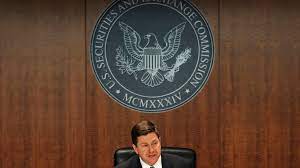On March 7, a panel of judges from the District of Columbia Circuit Court of Appeals questioned the U.S. Securities and Exchange Commission’s (SEC) rejection of Grayscale Investments’ spot Bitcoin ETF application.
The judges presiding over the first appeals hearing, Chief Judge Sri Srinivasan and Judges Neomi Rao and Harry Edwards, asked the SEC’s lawyer what more Grayscale needs to do to meet its requirements for the ETF.
Grayscale lead counsel Don Verrilli argued that the SEC’s rejection of the company’s spot Bitcoin ETF application was arbitrary, as the regulator has approved futures-based ETPs.
He further stated that there is no difference between the two, as they are both derived from the price of Bitcoin. Verrilli added that Grayscale wants to be regulated and is looking for a path forward.
However, the SEC’s lawyer, Emily Parise, argued that Grayscale’s argument is an “unsupported empirical leap” and that the onus to prove causation lies on the company. She further stated that the company had not provided sufficient “data” to alleviate the SEC’s concerns.
Judge Neomi Rao pointed out that Grayscale has provided a lot of information on how the two markets function with each other, but the SEC has not accepted the company’s reasoning.
Rao also questioned the SEC’s reasoning behind its rejection of Grayscale’s spot ETF application, as the regulator had previously concluded in the Tookrium order that futures prices are led by spot, and any fraud and manipulation on the spot market can be “adequately addressed on the futures market as it’s a regulated one.”
She asked Parise why the SEC then rejected the spot ETF application and why the reasoning does not extend to a spot ETF.
Parise said that there is a lack of evidence and data, and the regulator is not confident that fraud and manipulation could be prevented the same way it is for futures products.
The judges also questioned how the SEC approved futures ETFs under the Tookrium order but cannot apply the same reasoning to a spot ETF.



